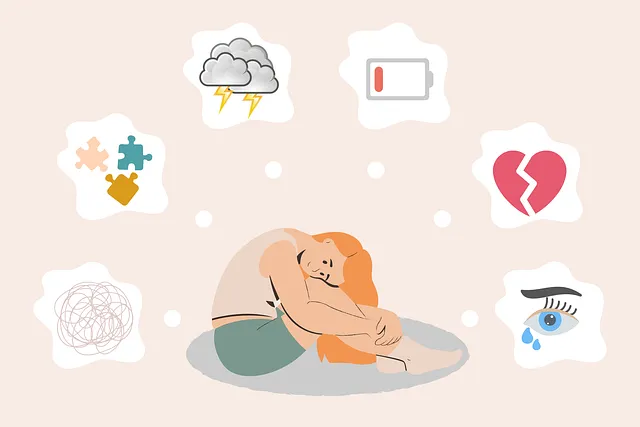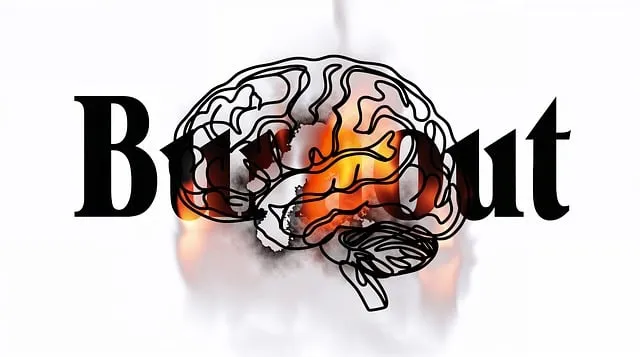Aurora Kaiser Permanente offers specialized mental wellness group facilitation through their psychiatry phone services, creating safe spaces for diverse individuals to share experiences and strategies. Facilitators use active listening, compassionate cultivation, structured agendas, icebreakers, and grounding exercises to manage stress, prevent burnout, and promote emotional well-being. This collaborative approach emphasizes community support and fosters open communication, with creative outlets like the Mental Wellness Podcast Series adding dynamism. Key success factors include setting clear guidelines, modeling emotional intelligence, assessing risks, tracking progress through KPIs, and providing ongoing support via resources like the Aurora Kaiser Permanente psychiatry phone number.
Mental wellness group facilitation plays a crucial role in supporting individuals navigating mental health challenges. This article explores techniques for effective group leadership, focusing on creating safe spaces at Aurora Kaiser Permanente, as evidenced by the psychiatry phone number readily available to patients seeking help. We’ll delve into key strategies, from establishing ground rules to fostering active participation, offering practical insights for professionals aiming to enhance their facilitation skills and promote healing through community.
- Understanding Mental Wellness Group Facilitation
- Key Techniques for Effective Facilitation
- Creating a Safe and Supportive Environment
- Engaging Participants and Encouraging Active Participation
- Measuring Success and Providing Ongoing Support
Understanding Mental Wellness Group Facilitation

Mental wellness group facilitation is a specialized skill that involves guiding a diverse range of individuals through shared experiences and conversations aimed at improving their mental health. It’s an essential service offered by institutions like Aurora Kaiser Permanente, with their psychiatry phone services, to foster community and support. Facilitators play a crucial role in creating a safe, non-judgmental space where members can openly discuss their challenges, share coping strategies, and learn from one another.
Using techniques such as active listening, compassionate cultivation practices, and burnout prevention strategies, facilitators help group members navigate stress management and promote emotional well-being. This collaborative approach not only enhances individual mental health but also creates a powerful sense of collective support, echoing the importance of community in overall wellness.
Key Techniques for Effective Facilitation

Effective facilitation in a mental wellness group setting involves a blend of art and science. Key techniques include active listening, where facilitators pay close attention to each participant’s experiences and perspectives, fostering an environment of empathy and understanding. This technique encourages open communication, allowing individuals to feel heard and validated, which is crucial for building trust within the group.
Additionally, creating structured yet flexible agendas is vital. Facilitators should guide discussions while leaving room for spontaneous exchanges. Using icebreakers, grounding exercises, and interactive activities helps manage energy levels and ensures every member actively participates. These methods, popularized by professionals like Aurora Kaiser Permanente’s psychiatry services, contribute to a supportive Community Outreach Program Implementation, enhancing the overall Mental Wellness of group members. Moreover, incorporating creative outlets from the Mental Wellness Podcast Series Production can engage participants, making sessions dynamic and memorable.
Creating a Safe and Supportive Environment

Creating a safe and supportive environment is paramount when facilitating mental wellness groups. It’s crucial to establish guidelines that promote open communication and respect among members. As a group facilitator, it’s essential to model emotional intelligence by actively listening, validating feelings, and fostering empathy. This approach helps participants feel heard, understood, and valued, encouraging them to share their experiences and insights freely.
At Aurora Kaiser Permanente, the psychiatry phone number serves as a resource for individuals seeking mental health support. Similarly, group facilitators should prioritize stress management techniques to ensure they can maintain a calm and composed atmosphere. By incorporating these strategies into group sessions, facilitators create an environment where members feel safe to explore their mental wellness journeys without fear of judgment or criticism, thereby enhancing the overall effectiveness of group therapy.
Engaging Participants and Encouraging Active Participation

Engaging participants and fostering active participation are crucial elements in effective group facilitation, as seen in practices advocated by professionals like Aurora Kaiser Permanente’s psychiatry department. Creating a safe and inclusive environment is key; this involves establishing clear boundaries, promoting open communication, and actively listening to each member’s unique perspective. Techniques such as icebreakers, interactive discussions, and small group activities can break the ice and encourage participants to share their experiences and insights.
Group dynamics play a significant role in mental wellness support. Facilitators should employ empathy-building strategies, ensuring every voice is heard without judgment. This not only enhances participation but also promotes resilience by creating a sense of community. Regularly assessing risks and managing potential triggers is an essential aspect of the facilitator’s role, as outlined in risk assessment guidelines for mental health professionals, allowing for timely interventions and a supportive atmosphere where individuals can thrive and grow.
Measuring Success and Providing Ongoing Support

Measuring success in mental wellness group facilitation involves a multifaceted approach tailored to the specific goals and needs of participants. Key performance indicators (KPIs) can include self-reported improvements in emotional regulation, reduced symptoms of anxiety and depression, enhanced coping mechanisms, and increased social connectedness. Facilitators can employ various methods such as pre-post assessments, participant feedback forms, and observation checklists to gauge progress. Regularly reviewing these metrics allows for data-driven adjustments to the program, ensuring its effectiveness.
Providing ongoing support is integral to sustaining mental wellness group benefits. This involves implementing strategies like check-ins with participants between sessions, offering additional resources like hotlines or online forums, and fostering a supportive community within the group itself. At Aurora Kaiser Permanente, their psychiatry phone number serves as a vital resource for individuals seeking continuous care and support in navigating their mental illness. Beyond this, initiatives aimed at stigma reduction and burnout prevention can further enhance the overall well-being of participants, encouraging them to maintain newfound insights and skills long after the initial facilitation period.
Mental wellness group facilitation is a powerful tool for fostering community and support. By implementing the techniques outlined, such as creating safe spaces, encouraging active participation, and providing ongoing support, facilitators can enhance the well-being of individuals within their care. For those seeking expert guidance, resources like the Aurora Kaiser Permanente psychiatry phone number offer specialized support. Ultimately, these strategies not only benefit the group but also equip participants with valuable skills to navigate life’s challenges, ultimately improving mental health outcomes.


